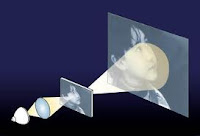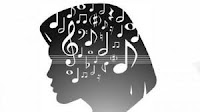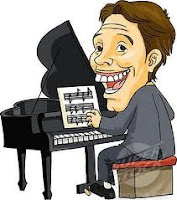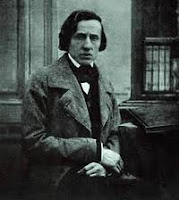A pianist writes:
1.How would you define this word "projection" and what distinguishes a piano or pianist with good projection?
2.Some say good projection is the piano's (or pianist's) ability to be heard in a large hall even if they're "playing softly". Some say that when a pianist is playing a pp passage in a large hall, those that project well are just playing that passage more loudly (if one was standing right next to the piano).
Some say good projection ability of the pianist or piano to project over an orchestra which, to me, implies a certain degree of loudness (without becoming very unpleasant) or brightness in the piano.
Do you agree with either or both of these concepts of good projection?
3. If you think good projection is mostly due to the piano, can you describe why certain pianos have this quality? If you think it's mostly due to the pianist, what in their playing determines whether a pianist will have good projection?
4.Is the idea of projection only applicable to performances in rather large halls? (I can't see how this concept would apply in the home or in a small hall.)
 "Projection" has to do with both the piano and the pianist. The duller the former is, the sharper the latter has to be. The acoustical properties of the hall can also be a large issue. But projection is also about conveying the ideas of the music to the listener. Imagine standing on a stage and speaking of love to someone in the last row of a hall. You would use your voice differently than if the person were standing next to you. Similarly, in your living room you would speak differently to someone across the room than you would if he were next to you. This is about loudness, but also about focus. My teacher used to say that when we play we listen with three ears: one for the sound on stage, one for the concept inside our heads and one at the back of the hall.
"Projection" has to do with both the piano and the pianist. The duller the former is, the sharper the latter has to be. The acoustical properties of the hall can also be a large issue. But projection is also about conveying the ideas of the music to the listener. Imagine standing on a stage and speaking of love to someone in the last row of a hall. You would use your voice differently than if the person were standing next to you. Similarly, in your living room you would speak differently to someone across the room than you would if he were next to you. This is about loudness, but also about focus. My teacher used to say that when we play we listen with three ears: one for the sound on stage, one for the concept inside our heads and one at the back of the hall. |
| Overtone Series |
 Pianistically, sound carries when the appropriate amount of weight and impetus are applied. This is about loudness, but also about quality. If we accept the physicist's notion that quality is determined by the number and prominence of overtones, then we have to consider how to control the overtones. Playing with a "cushioned" attack from the key will produce fewer overtones than striking the key hard and fast from above. We use both types of attacks in order to control the "meaning" of the sound, the ideas we want to convey to the listener. The brighter the sound, the one produced by striking harder, the more likely it will carry. Consider the oboe. It famously produces a small, "narrow" sound, but its quality and range can make it very piercing. Whereas the double bass has a thicker, "wider" sound and lower range, perhaps even louder in terms of decibels (not sure about that), and yet it is very difficult to hear clearly in a hall. So, depending on our musical intentions, the nature of the piano and the hall, we have to decide on what kind of attack will produce the desired results.
Pianistically, sound carries when the appropriate amount of weight and impetus are applied. This is about loudness, but also about quality. If we accept the physicist's notion that quality is determined by the number and prominence of overtones, then we have to consider how to control the overtones. Playing with a "cushioned" attack from the key will produce fewer overtones than striking the key hard and fast from above. We use both types of attacks in order to control the "meaning" of the sound, the ideas we want to convey to the listener. The brighter the sound, the one produced by striking harder, the more likely it will carry. Consider the oboe. It famously produces a small, "narrow" sound, but its quality and range can make it very piercing. Whereas the double bass has a thicker, "wider" sound and lower range, perhaps even louder in terms of decibels (not sure about that), and yet it is very difficult to hear clearly in a hall. So, depending on our musical intentions, the nature of the piano and the hall, we have to decide on what kind of attack will produce the desired results.Practically speaking, in our rehearsing we should always listen with that 3rd ear for what I call a "usable" sound, one that speaks beyond the immediate environment of the instrument, often referred to as a singing sound. This needs to be worked into the technique just like any other skill. Sometimes students play on the surface of the keys; I call this whispering or talking to oneself. Our objective as performers is to create various illusions, one of which is the illusion of whispering, a stage whisper to put it in acting terms, achieved by combining the appropriate amount of weight and speed of key descent. That third ear tells us what is needed for a particular hall; the stage ear tells us what is needed for a particular piano. And the inner ear governs all of the above.








